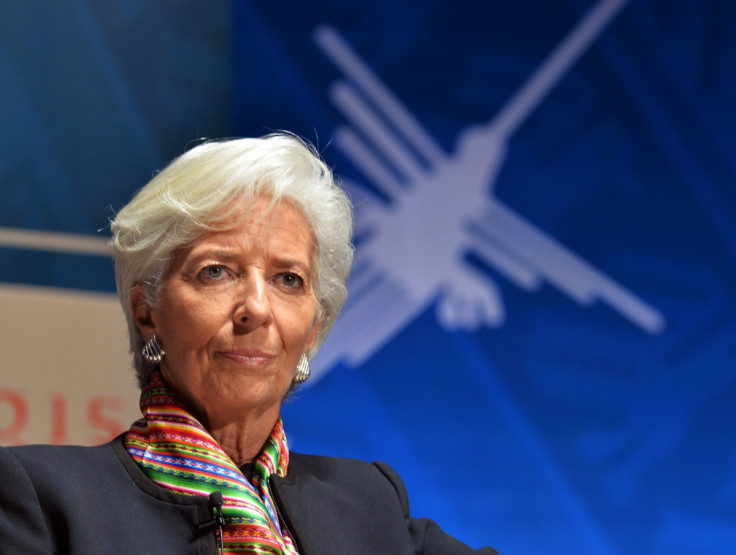IMF head Christine Lagarde says time is right for carbon emission tax to tackle pollution

The International Monetary Fund (IMF) boss Christine Lagarde has said that 2015 would be a good year to introduce a tax on carbon emissions, saying that it would shrink pollution and help with countries' fiscal buffers. The French lawyer and managing director of the IMF said that the taxation on greenhouse emissions is much needed.
At the IMF and World Bank's annual meeting in Lima, she said: "It is just the right moment to introduce carbon taxes. Finance ministers are looking for revenues. That's the fate of finance ministers but it's particularly the case at the moment because many have already used a lot of their fiscal buffers... and are always in need of some fiscal buffers in order to fight the next crisis."
At the event, Lagarde, the first woman to head the IMF, also said that she would be willing to serve for another term. Appointed in 2011, her term as MD is ending in July, but she said she would still be open to adding another five years, if the IMF shareholders wanted her to.
"I'm certainly open to the fact that it could not be my last annual meeting," she said in a panel. "I have served, [I have] done my best. I'm prepared to serve, but it is not my call."
Her comments on climate change and carbon emissions come as many countries are still experiencing a heavy slowdown in economic recovery. Emerging markets as well as Western economies are struggling to grow back to pre-crash levels.
Meanwhile, world powers such as the Pope and Bank of England governor Mark Carney have called on businesses to be more conscious of their influence on climate change.
Speaking at a Lloyd's of London insurance event, Carney said that the challenges currently posed by climate change "pale in significance compared with what might come".
"The far-sighted among you are anticipating broader global impacts on property, migration and political stability, as well as food and water security," he said. "Alongside major technological, demographic and political shifts, our very world is changing. Shifts in our climate bring potentially profound implications for insurers, financial stability and the economy.
"Evidence is mounting of man's role in climate change. Human drivers are judged extremely likely to have been the dominant cause of global warming since the mid-20th century," the governor added.
© Copyright IBTimes 2025. All rights reserved.






















